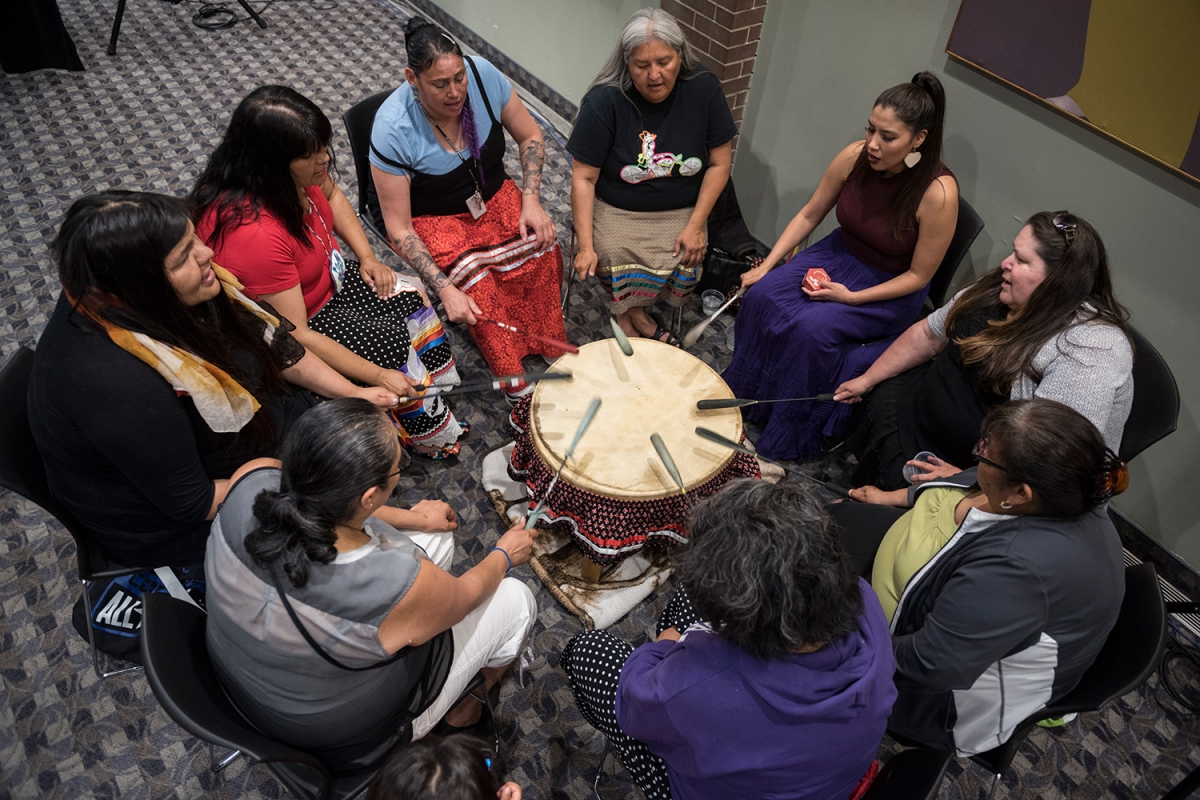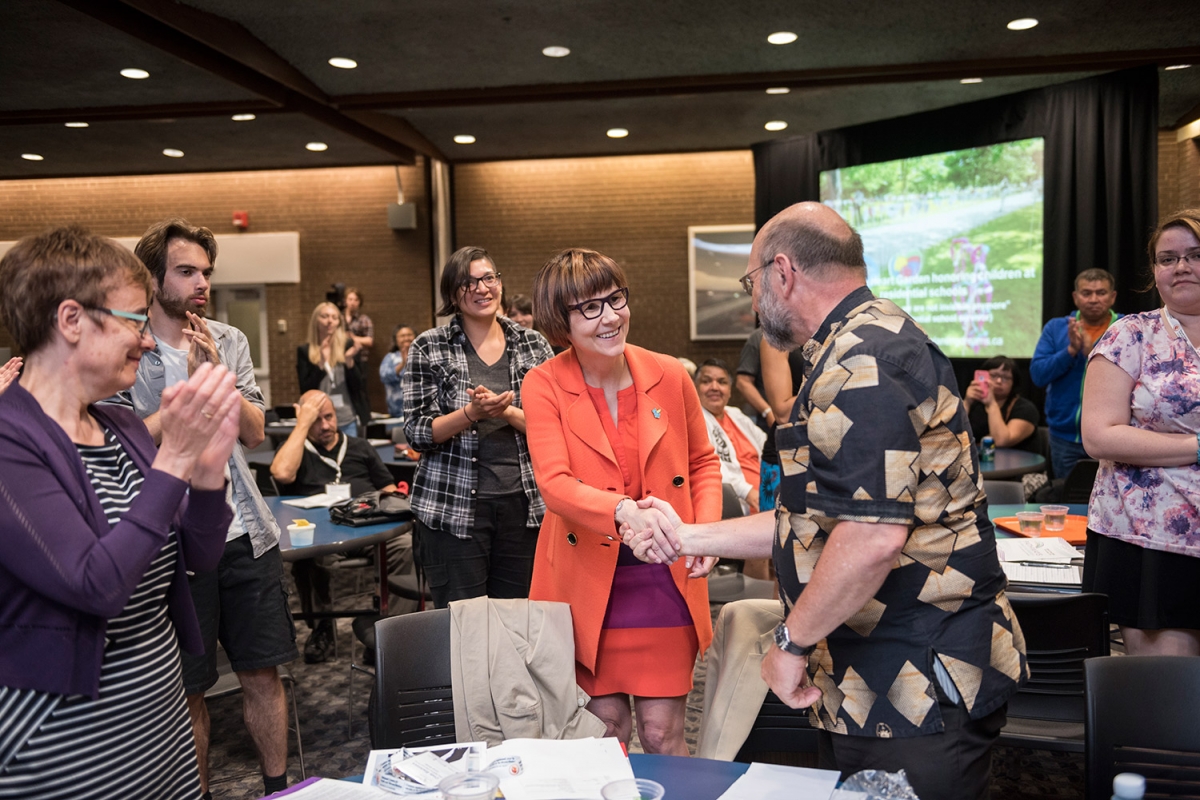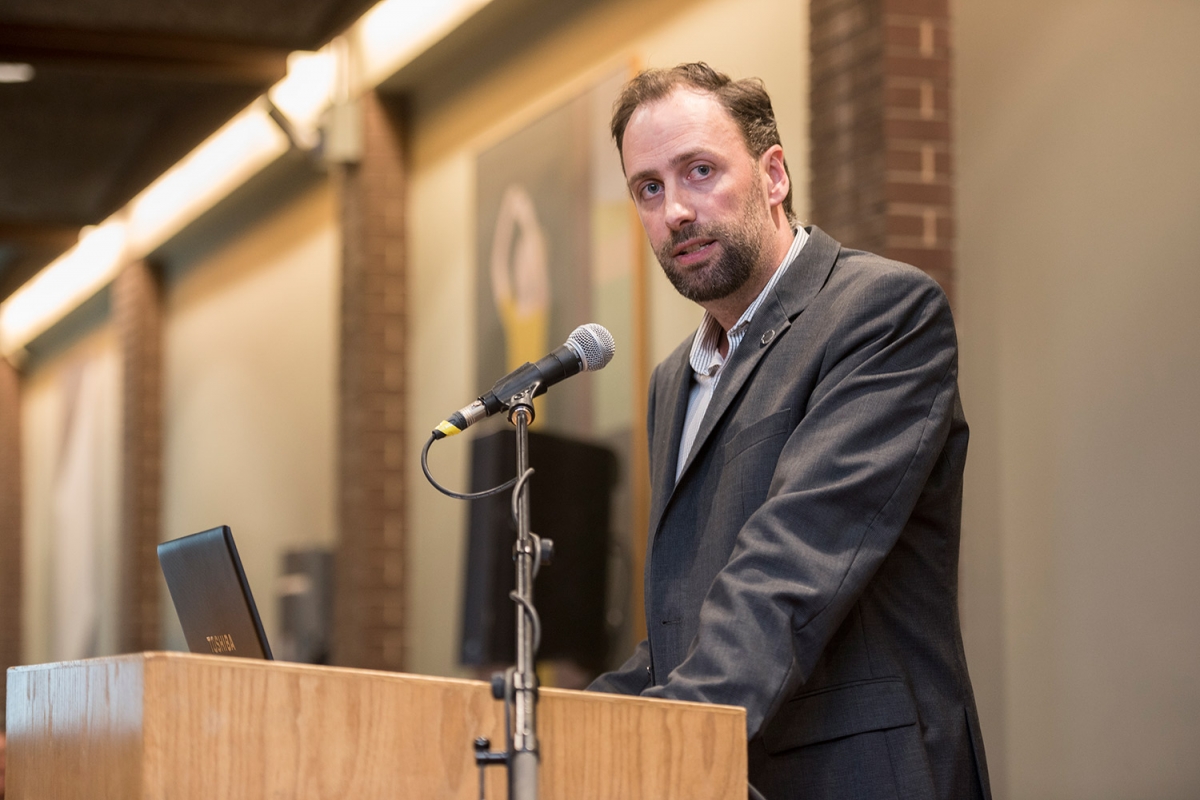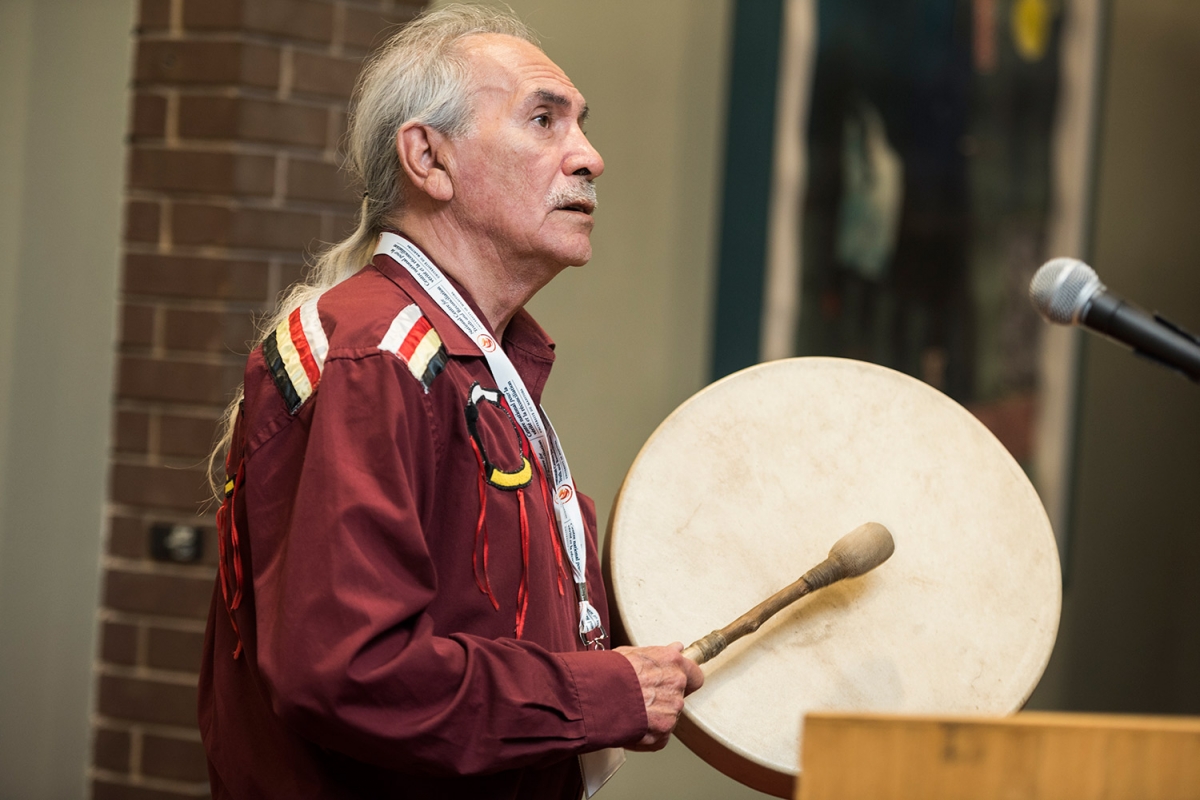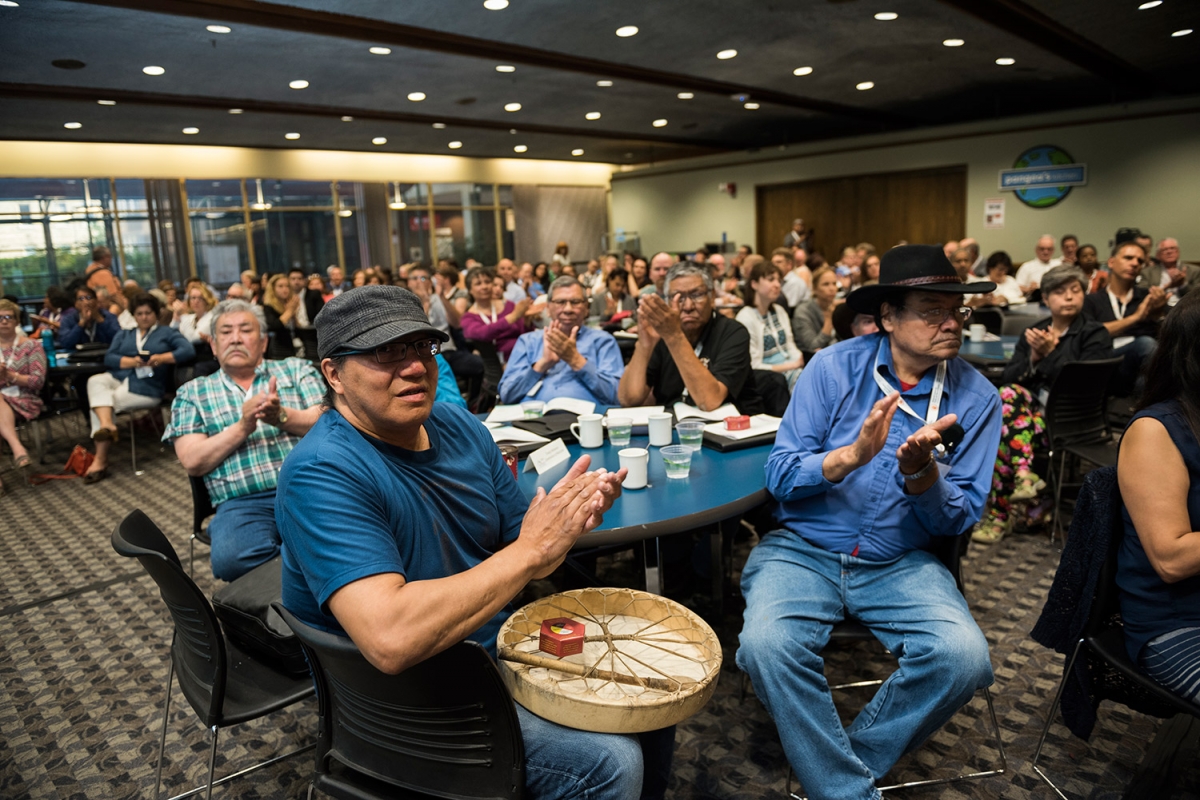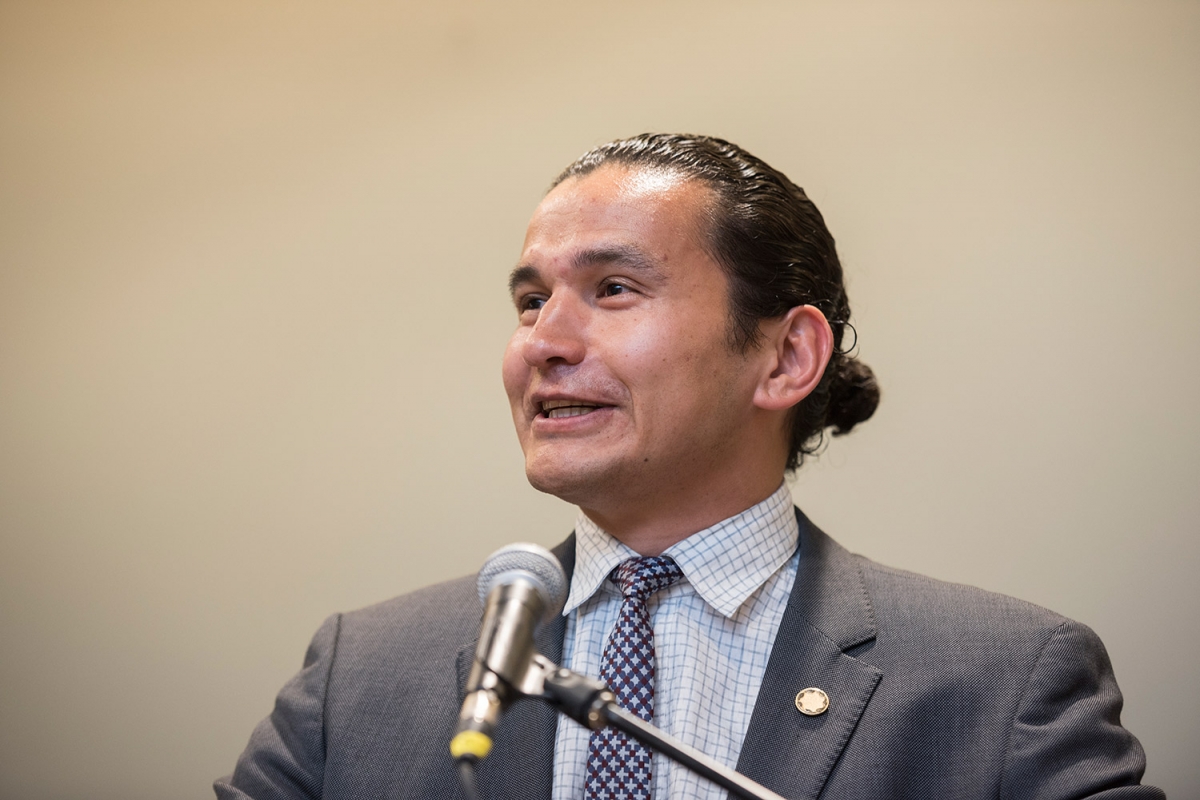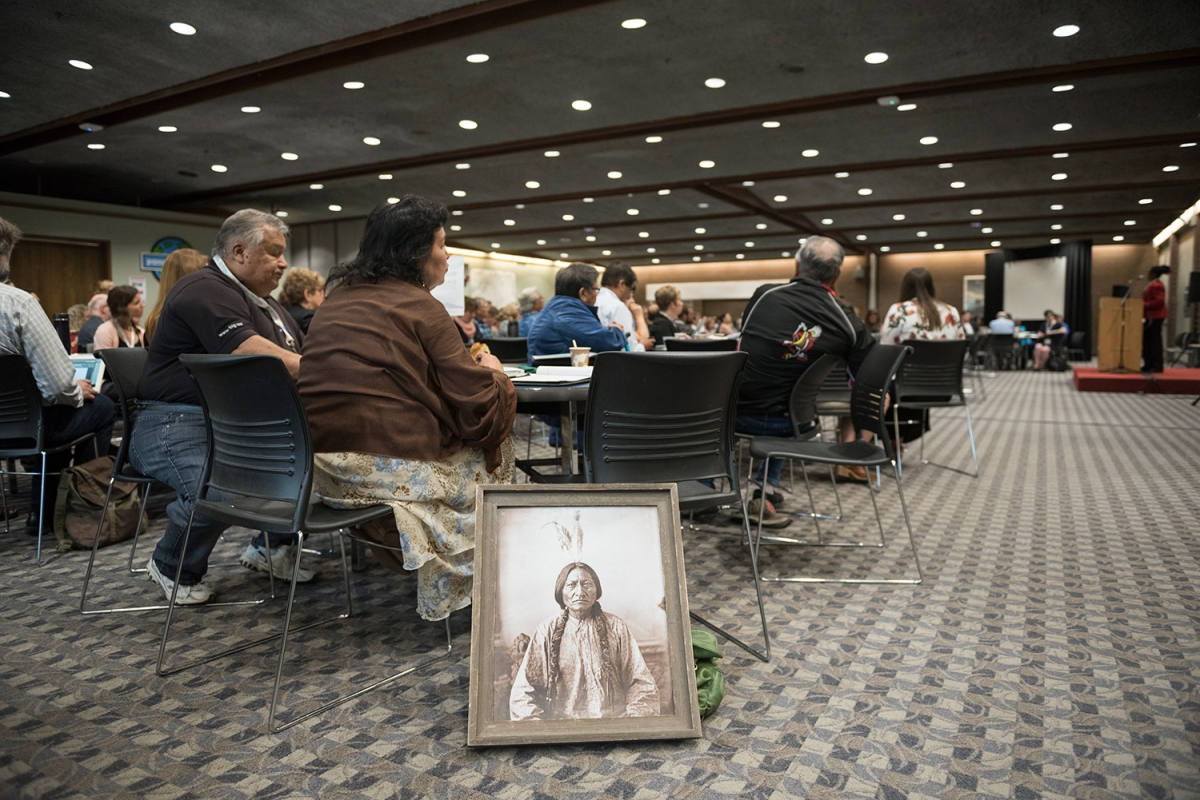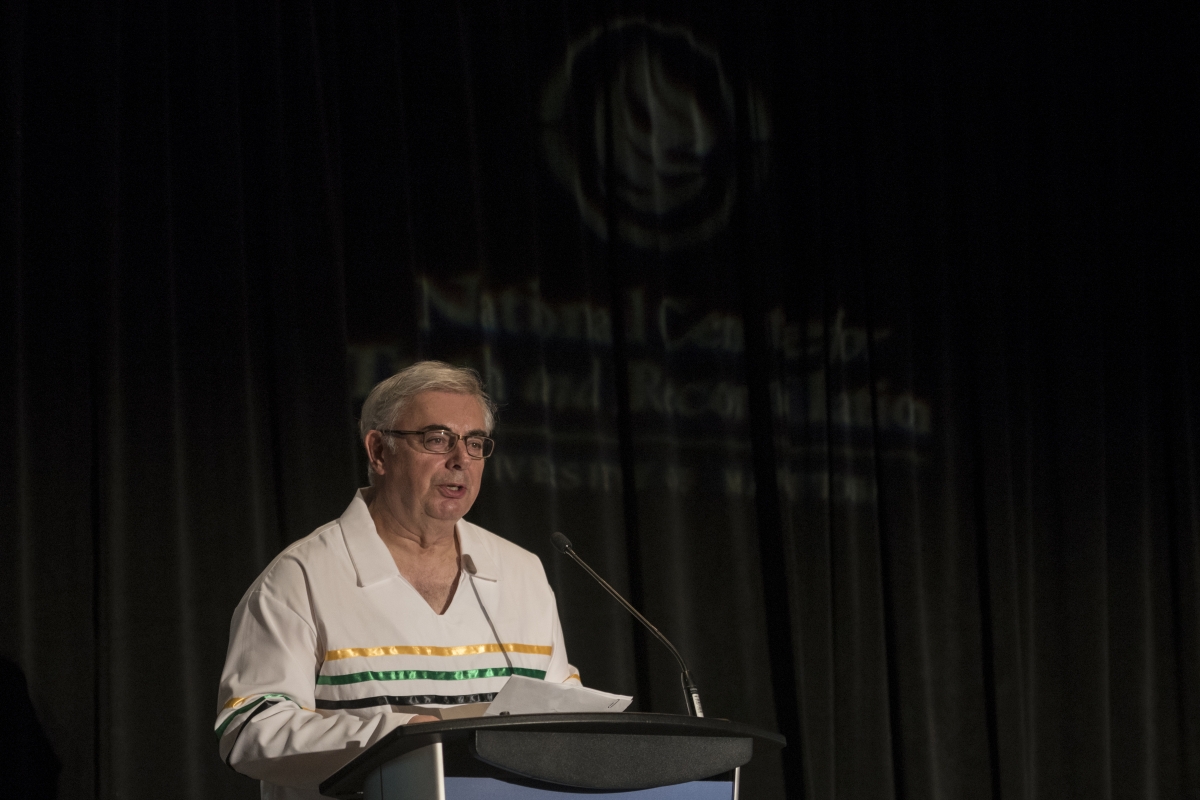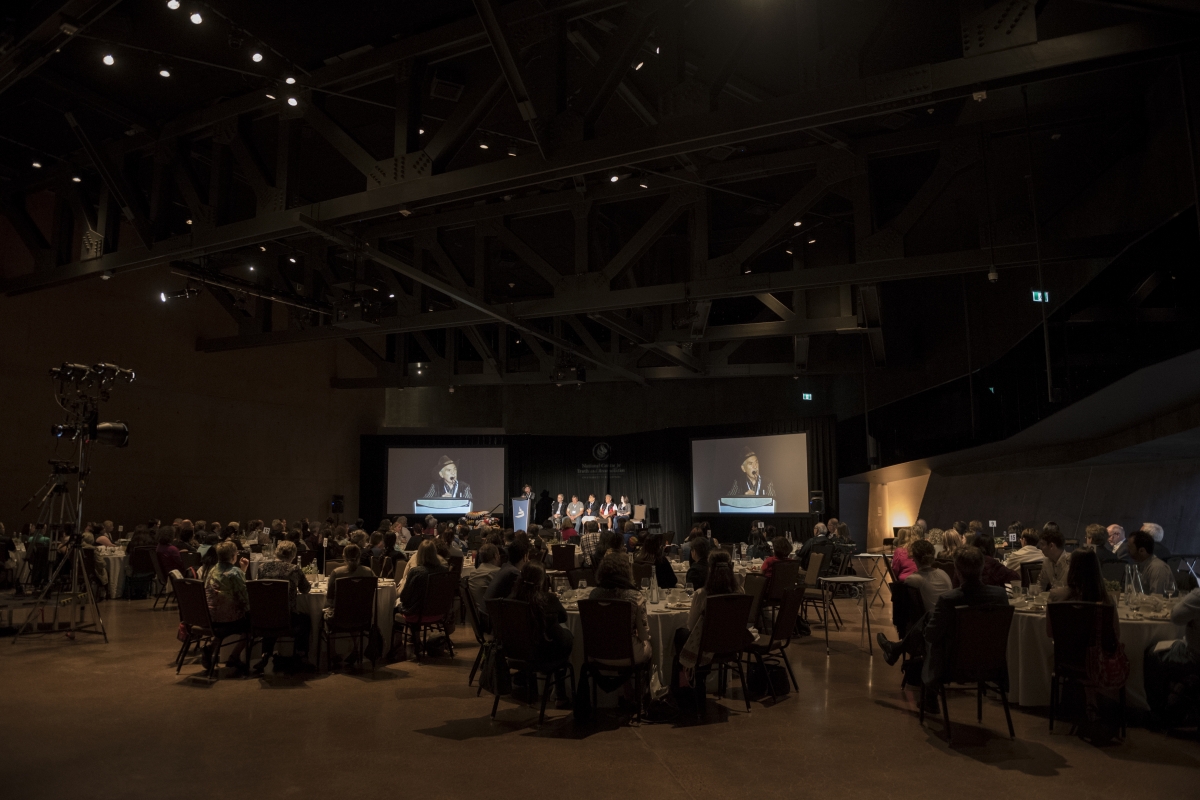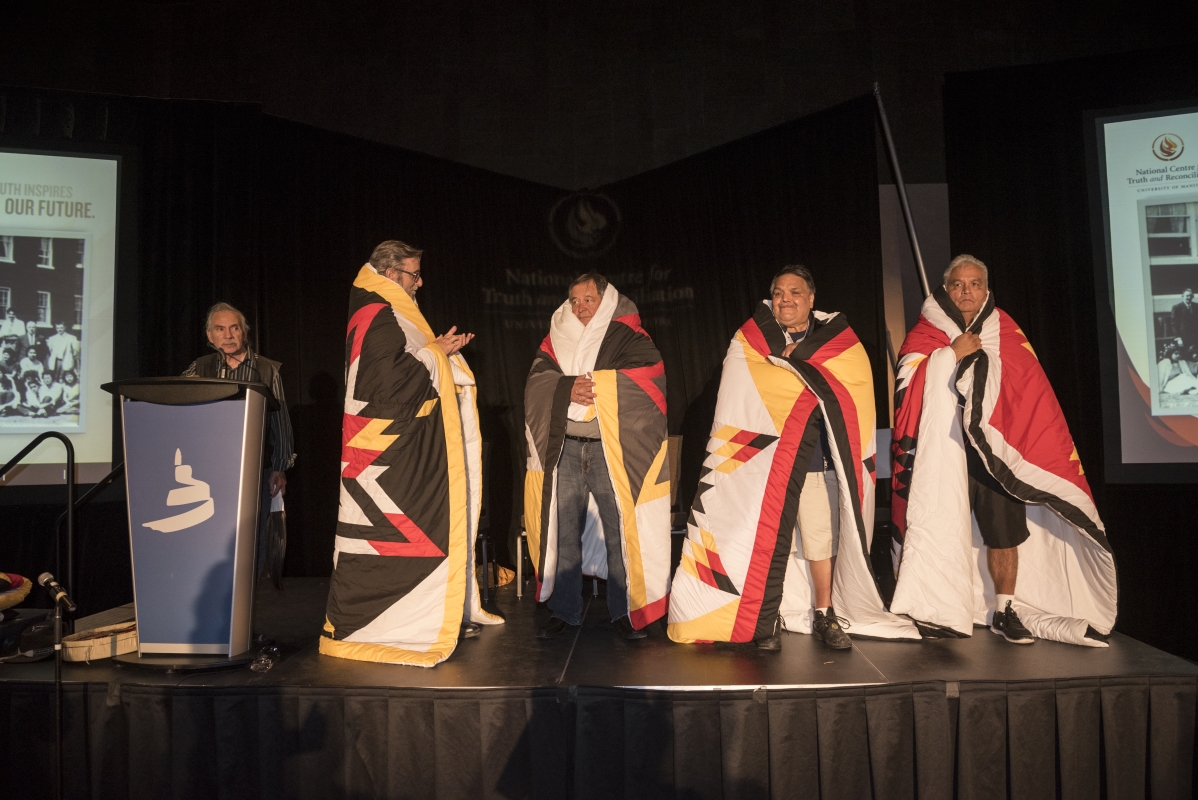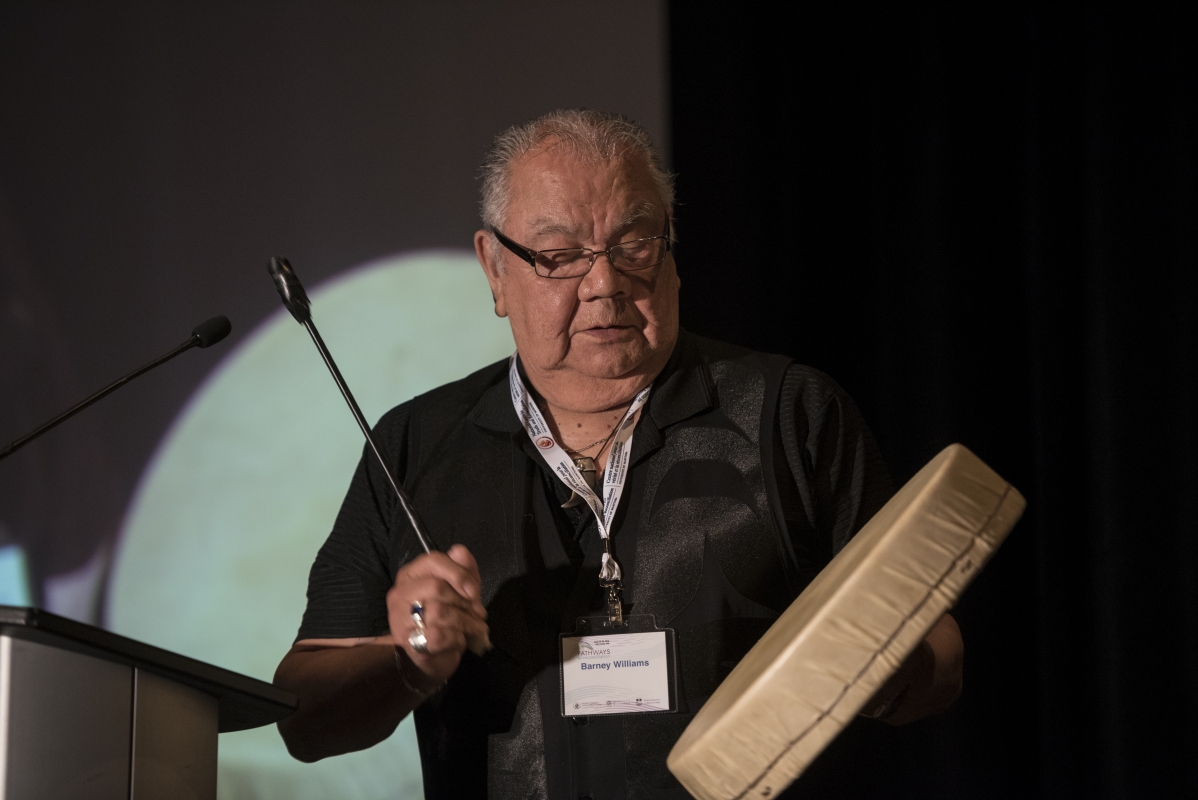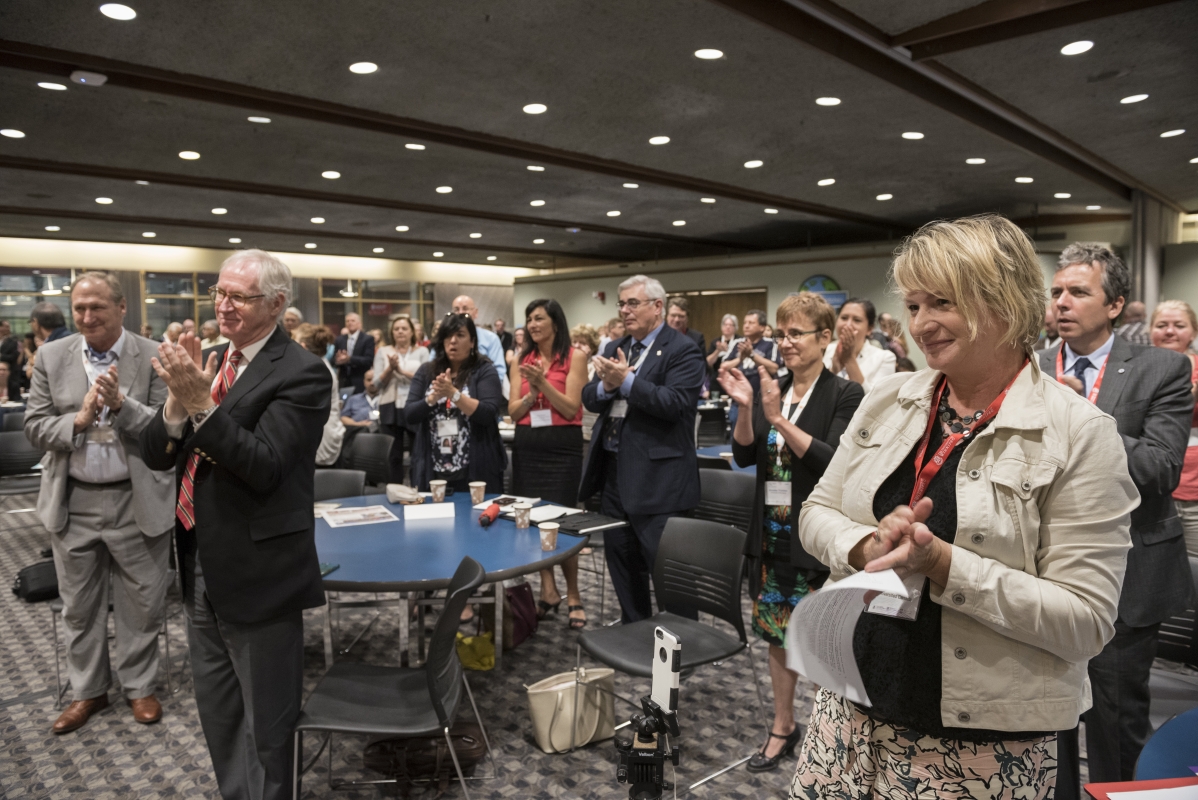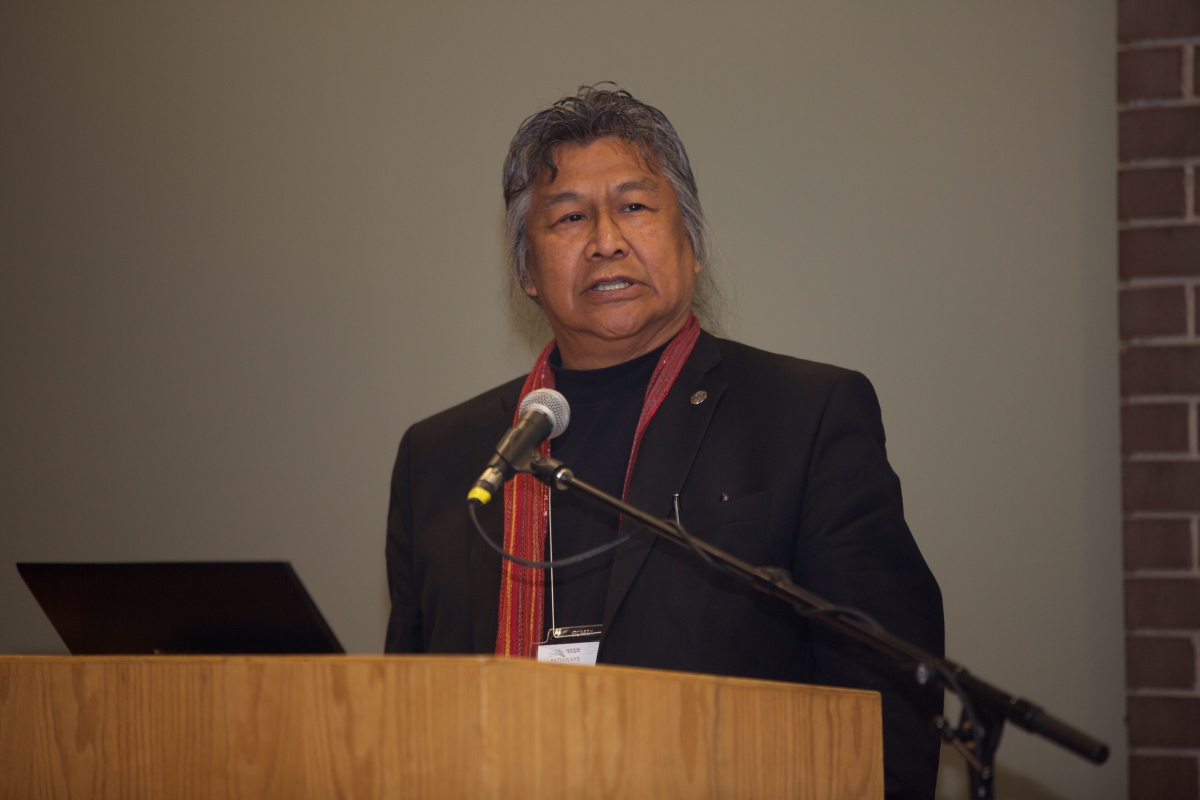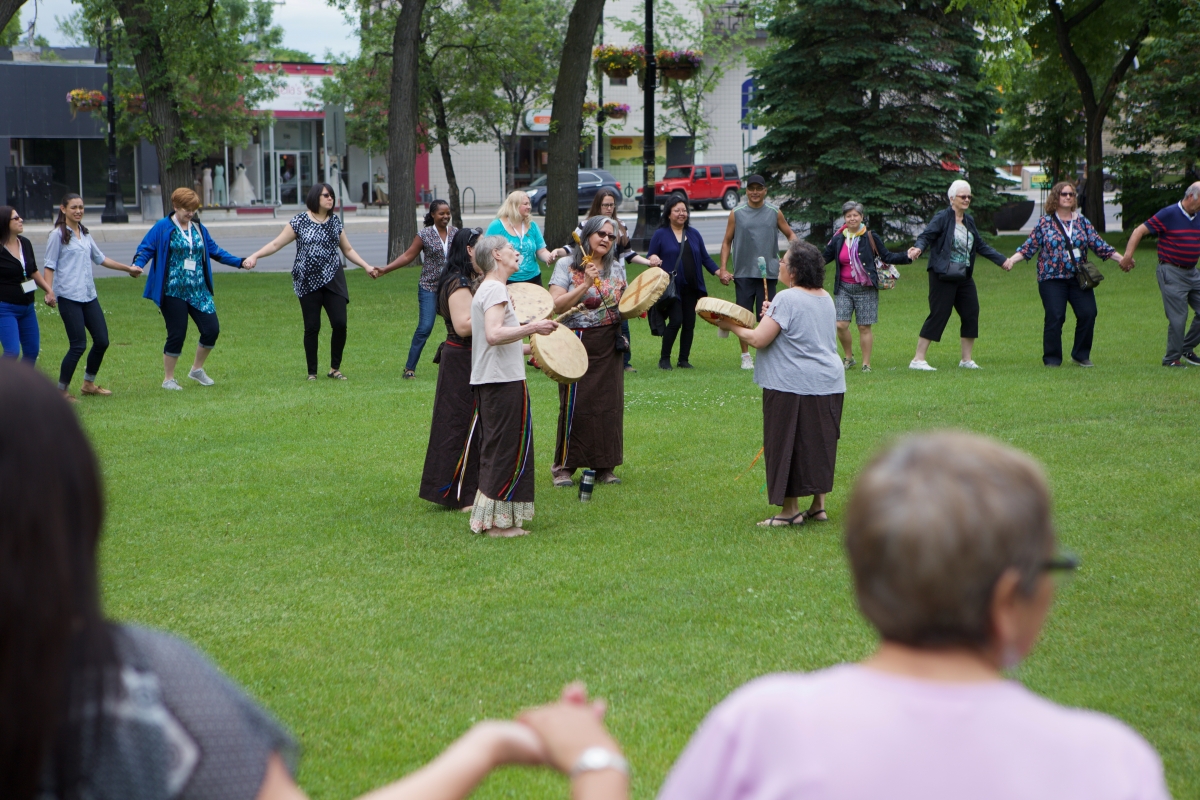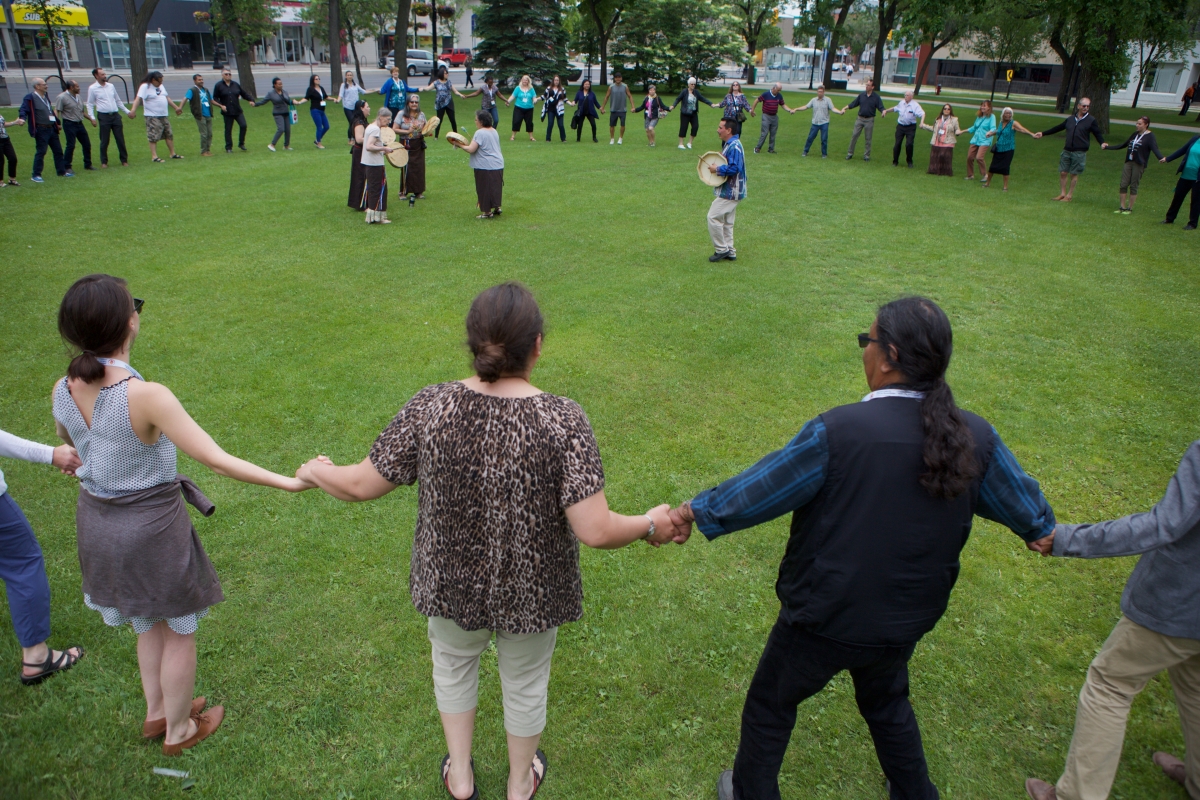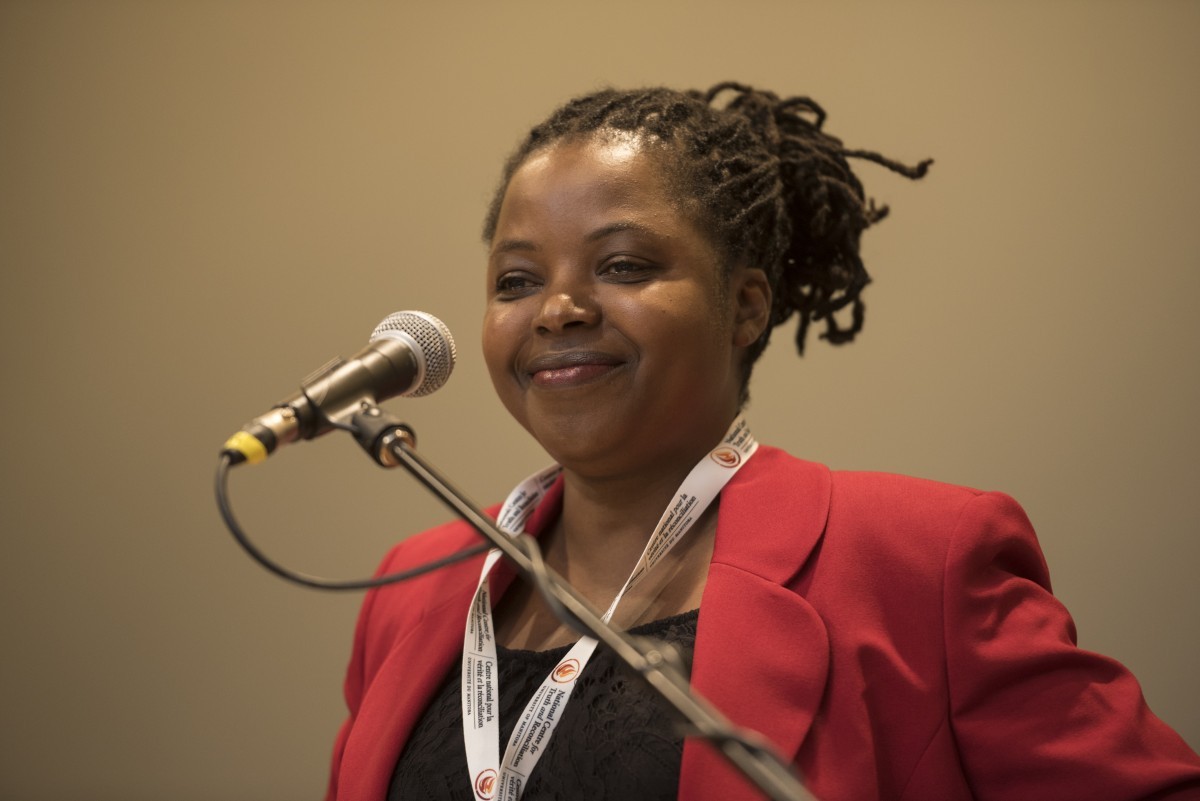
Regine King spoke twice at the Pathways to Reconciliation Conference
Breaking down social barriers
On a path to reconcile
The Pathways to Reconciliation conference drew hundreds of people from across Canada and as far away as Australia and New Zealand. Survivors, researchers and those with a driven passion for change listened and engaged in stories on what Reconciliation means. The four day conference had a slate of 30 presenters, including community members and U of M researchers such as Andrew Woolford, Adam Muller, Regine King, Karen Busby, Kiera Ladner, Aimee Craft and Jocelyn Thorpe.
The National Centre for Truth and Reconciliation, the University of Winnipeg and the University of Manitoba jointly organized the conference with many partners, including the Canadian Museum of Human Rights.
Andrew Woolford and Adam Muller presented on the Embodying Empathy project, during a panel discussion in one of the breakout sessions on Thursday, June 16. Together, with a team of researchers and a committee of Residential School Survivors, they’re building a virtual Indian Residential School to be used as a learning and empathy-performing space.
“The project is to see whether this virtual technology—technology that’s used for video games and other forms of digital narratives and is being increasingly incorporated into museums—can be used to create a better understanding and empathy towards Residential School Survivors,” says Woolford, head and professor of sociology in the Faculty of Arts. “It will also, hopefully, serve as a gateway to the TRC archive and other resources that are available.”
Panelists in the session included members of the project’s Survivor Advisory Committee. They all spoke passionately about their experience in Residential Schools and the struggles they faced afterward.
With the increasing use of information-based, as opposed to artifact-based exhibits in museums, the Embodying Empathy project highlights the variety of leading experts in Reconciliation efforts at the U of M. Woolford says the project is still about a year and a half away from a public launch on immersive 3-D virtual reality platforms such as Oculus Rift, to accessible 2-D versions available on tablets and mobile phones.
“Ideally, it’ll find its place in galleries and museum sites where people can experience that more fully immersive version of it. Part of the goal of any community-based project is to make it accessible so we have to make it work through multiple settings with multiple devices,” says Woolford.
The project is funded by the Social Sciences and Humanities Research Council through a Partnership Development Grant, the University of Manitoba and the Criminology and Social Justice Research Fund.
Another concurrent session—Marginalized Agents of Change—showcased the research of social work professors Cathy Rocke and Regine King who shared their research about the relevance and acceptance of the Truth and Reconciliation Commission (TRC) by newcomer populations in Canada.
The duo began by highlighting that of the 94 Calls to Action listed in the TRC’s final report, the last two were addressed to newcomers. Namely that the information kit for newcomers and the revision of the Oath of Citizenship should include information about the Treaties and history of Residential Schools.
Their research projects supported the urgent need for more dialogue between Indigenous peoples and new Canadians, noting perceptions and interactions between newcomers and Indigenous people are an understudied area.
In trying to determine how new Canadians understand Reconciliation with Indigenous peoples following the release of the TRC final report, Rocke and King surveyed a diverse group of newcomers that varied in age, length of time in Canada and where they emmigrated from.
The study found that Reconciliation by newcomers could be summarized in three major themes. Firstly, many participants felt that the wrongs happened long before they came to Canada, therefore “it wasn’t their fight.” Secondly, many they spoke to said they do identify as Canadian and that if there is an issue here, they need to be part of the Reconciliation efforts with Indigenous peoples. Finally, results also highlighted a similarly shared history of colonization, thus newcomers to Canada felt the need to work together with Indigenous populations.
“African refugees surveyed are worried about the same things Indigenous people are,” said King. “Many are concerned about their families and worry about children in care and gang influence on their growing children. Reconciliation actions may be taken to enhance mutual respect and harmony between Indigenous people and new Canadians. In the process of decolonization there are so many things we need to unlearn.”
Another presenter in the session, women’s and gender studies professor Jocelyn Thorpe, jokingly referred to herself as “an old white woman” and challenged attendees to wonder why she should speak about youth-led Reconciliation.
“There is a role for all of us in this process,” was her answer.
She highlighted the 4 Rs Youth Movement—respect, Reconciliation, reciprocity, relevance—a national initiative that engages young people in critical cross-cultural dialogue to further Reconciliation. Thorpe spoke highly of the group, saying this kind of initiative has the potential to invoke real change.
Closer to home, Thorpe pointed out what’s happening here. Students and other youth she’s working with have created an Indigenous film series, featuring new works of Indigenous filmmakers that focus on both the histories and legacies of Residential Schools. What started as a single screening has since turned into a series of free screenings where the filmmakers are on hand to answer questions after the showing.
“Indigenous peoples do not need spokespersons they need space-makers,” said Thorpe. “It’s important to use the tools that we have or have access to, in order to build and cultivate relationships.”
Political studies professor Kiera Ladner brought the panel together in the end with her sharp insight and analysis.
“It’s a fascinating time to be here and part of this history,” said Ladner, who holds a Canada Research Chair in Indigenous Politics and Government.
She went on to say that there is a need for inclusive conversations about youth and newcomers and the wide spectrum of issues related to Reconciliation. These discussions need to be represented by the diverse and complex web of people who face these issues.
“We have a lot to learn from each other. We have a lot to share,” said Ladner. “It also reminds of the importance of [the] arts to get these conversations going. It also teaches us that there are very different conversations to be had. It allows us to build conversations about decolonization.”







